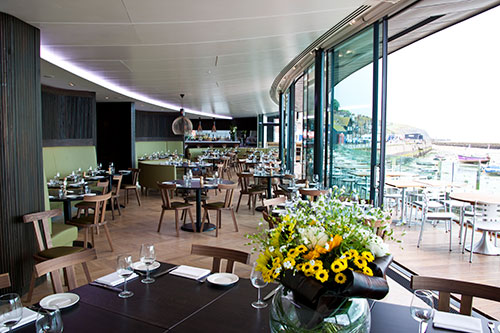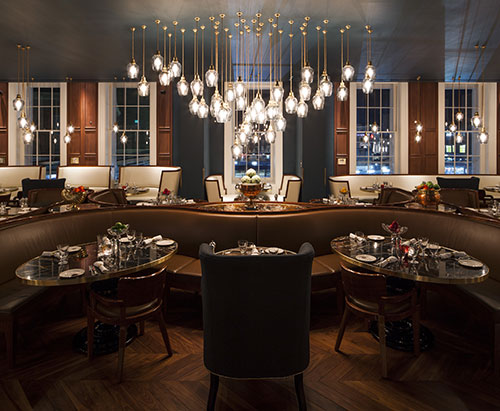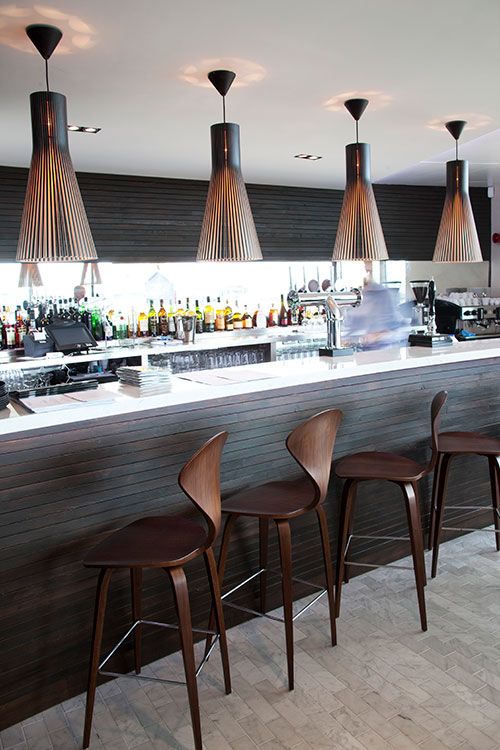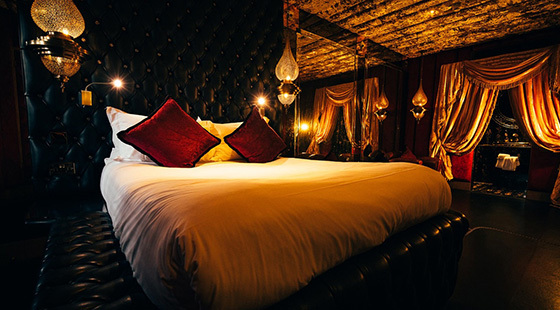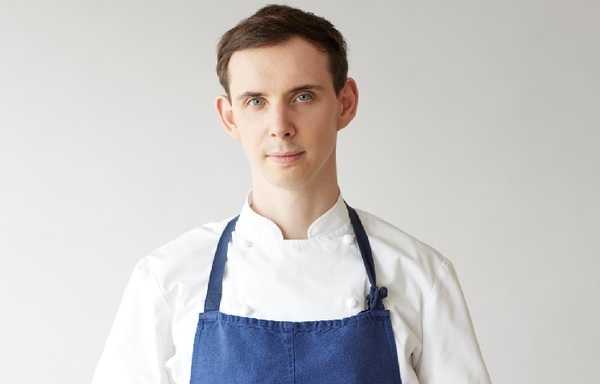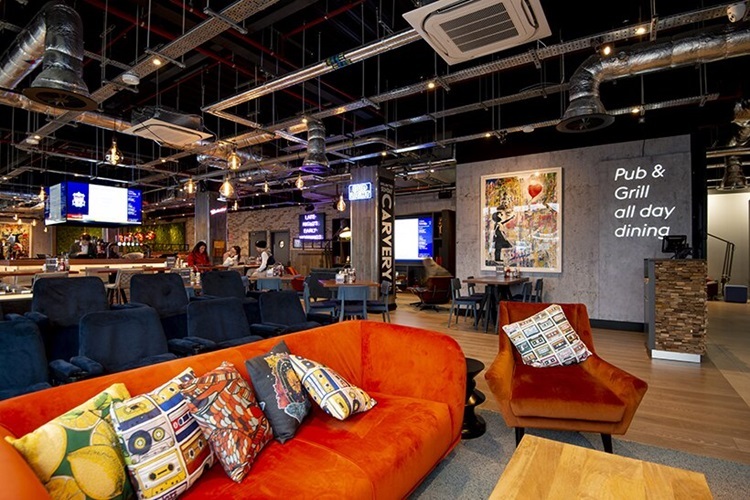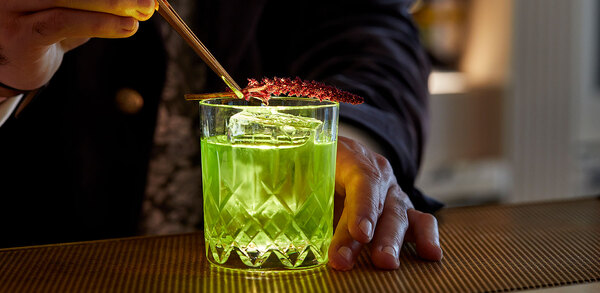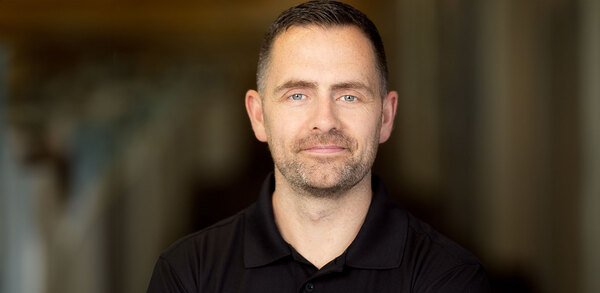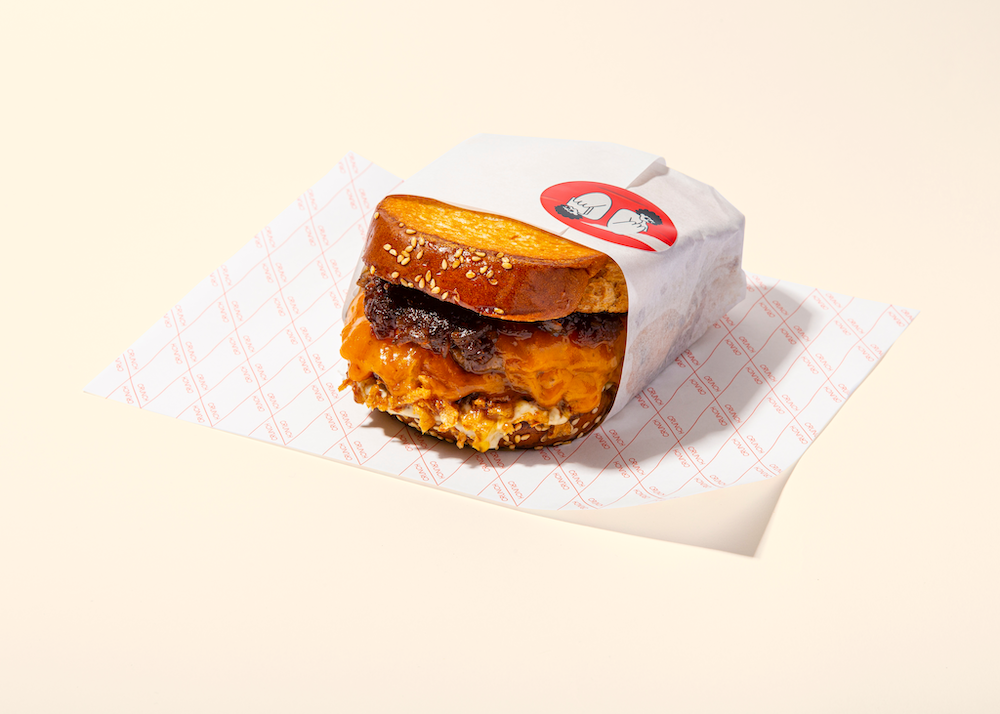Mark Sargeant: still rocking
It's five years since Mark Sargeant launched Rocksalt and the Smokehouse in Folkestone, and now he's setting his sights on expanding his Kentish empire. He talks to Neil Gerrard about making Folkestone the next Padstow and taking a step back from the kitchen
Really well. And when we have sunshine, things are even better. Down at Rocksalt we are seasonal â" thereâs no two ways about it. We are still really busy off-season, but in the summer we are packed and heaving to the rafters. We could give any London restaurant a run for their money, but the weather tips the balance.
We generally do most of our turnover during seven months of the year. Last year we had a terrible summer, but the year before that was amazing and lasted all the way through to October. I watch the weather all the time now because of my business.
What about when the local roads get busy with freight and holidaymakers travelling to the Eurotunnel and Dover â" how does that affect you?
Last year there was Operation Stack [a procedure used by Kent Police and the Port of Dover to park lorries on the M20 in Kent when services across the Channel were disrupted] and we reckon we lost about £50,000 worth of revenue with that. The M20 was closed for 35 days, but on the other days people just didnât want to risk coming. Plus the weather was bad. So this year we really want to have a good summer, but on the whole it is going really well.
Rocksalt
Five years ago when you launched the restaurants you said you wanted Folkestone to be the next Padstow. Do you still believe that can happen?
When we opened Rocksalt, we were the first part of the jigsaw puzzle. My business partner is Sir Roger De Haanâs son, Josh De Haan. Roger [former chairman and chief executive of the Saga Group] is spearheading the whole redevelopment of the harbour front and he and his son are my landlords.
The second part of the puzzle was the Harbour Arm [a restored promenade], which cost about £3m â" they have re-tarmacked the whole thing and re-laid all the services and there are lots of beautiful restaurants there, a microbrewery and the Lighthouse Inn, which hosts great live music. Next year, we have the Folkestone Triennial, which is a big art fair with huge installations from well-known artists, and the first phase of houses will start to be built on the seafront. So all in all, I feel massively positive about Folkestone.
I have seen so much change here in the past five years. When the railway station on the harbour is redeveloped, there is going to be more shops â" boutiques, antique shops and so on. Iâd like a deli and a wet fish shop there, maybe with a few seats and a little griddle or something, so you can pick some fresh fish and either take it home or eat it there.
You recently acquired the Duke William in Ickham, which is also in Kent. How have you found taking on your first pub business?
We had a really tough first year. The locals are very fickle and if you upset them, it takes a lot to get them back. It had been a really popular localsâ pub and then, before we moved in, someone else came in and tried to turn it into a fine-dining restaurant. They werenât getting the food right and it alienated people.
The freeholder wanted someone else to take it over, so we went in and got a 10-year lease. We have London-ised it slightly, so it is has more modern pub décor, but it is still a pub and that is what I wanted first and foremost.
We opened in April last year and we had to work hard to entice people back, but we are picking up and doing 40-50 covers on a Monday night. And we do things like curry nights, steak nights with music, comedy, magic â" all those things you want to have in a pub.
Plum and Spilt Milk
You are an ambassador for the Young National Chef of the Year, the final of which is coming up on 4 October. Why is it so important be involved in something like this?
Although it is a slightly different competition to when I won Young Chef of the Year in 1996 or National Chef of the Year in 2002, I remember winning those competitions and getting to meet well-known chefs.
When I won Young Chef of the Year, Paul Heathcote was very much on the scene and I think he had two stars. I remember going up and talking to him â" itâs a good way for young chefs to meet people who they look up to.
On the finals day we have the Chef of the Year and the Young Chef together, and so you have the likes of Sat Bains, Claude Bosi, Tom Kerridge, Phil Howard and Clare Smyth â" the countryâs real cream of the crop. All these young people get to go around and chat with them and see how normal they are and be inspired by it all. That is very close to my heart.
You are also working with foodservice supplier Brakes to help enhance its range and increase its appeal to chefs. What sort of work are you doing?
They wanted to make Brakes about food again. Their logistics, delivery, IT, all that kind of stuff, thatâs unbelievable, but they said: âHold on a minute, we need to get back to foodâ. Even if you are working in IT, you should know that you are working for a food company. So that is why I was brought on-board â" not to sell Brakes products, but just to re-engage with the company about food. We use a lot of its products at my Folkestone restaurants.
Most recently you have started working with Spanish beer brand Mahou. What is involved?
Rocksalt is not a seafood restaurant per se, but we are very heavily influenced by the dayboats and we have become known for seafood. Mahou was originally brewed to go with tapas, but more importantly with seafood, so that is why they approached me.
I worked on four videos alongside chefs from modern Spanish tapas restaurants in the UK [including Pintura in Leeds and Hispania and Camino in London]. They were tasked to come up with different styles of tapas dish to go alongside the Mahou beer.
Tapas is a really fun, enjoyable way to eat and we have caught up with it in this country. What I found was that a lot of the tapas dishes had quite powerful flavours, with lots of olive oil, garlic, chillies and pimento. Mahou has a creamy finish to it. It has an almost Guinness-like head, which works really well with the food.
Rocksalt
What sort of effect do you think Brexit will have on hospitality?
No-one knows. Our suppliers havenât put their prices up yet â" the ones we work with have told us it is business as usual and they are just going to wait and see what happens.
However, I donât know whether it will cause problems with employing European staff. Generally, catering will always hold its head above water because people will always want to go out and celebrate or have Sunday lunch, but we need to think very pragmatically about the situation and what we do next.
To be honest, I think the credit crunch was the best thing that happened to the dining scene in the UK, because suddenly the bankers and the fine dining were gone. Everyone had to reinvent themselves, we got street food, and now British food is the best it has ever been. So Brexit makes me nervous, but maybe it could be the best thing that could have happened. It might give us a slap around the face.
You have a lot on your plate and you do it with a lot of energy and enthusiasm. How do you find the time?
When I left Gordon Ramsay, I didnât want to go back into the kitchen again. That was a major decision. I have had 20 years in the kitchen and I donât want to turn my back on it because I am still a chef, but I just wanted to evolve my work and grow and progress. I hate the word, but I am more of a restaurateur now.
There is so much more to running a business. I donât take a salary from any of my businesses. Itâs much more about growth and reinvestment, and maybe in 10 or 15 yearsâ time â" but hopefully more like five â" it will be a pension fund and there for my childrenâs future.
But I still have to earn rent and pay bills, which is really why I got into the consultancy bits. But I only do projects that I want to do â" I like Mahou, so I wanted to do the project with Mahou. I love the products and the people that I work for Knorr at Unilever Food Solutions; and Brakes and at Plum and Spilt Milk [at the Great Northern hotel in Londonâs Kingâs Cross]. So I do it with energy and enthusiasm because I enjoy doing it and it makes my life so much more diverse.
What plans do you have for the future?
Iâd like to add to our little Kentish empire. Josh De Haan and I want to put some money into bricks and mortar and get some ballast to our business. We are always looking at other pubs coming up on the market. We opened the pub up with money from the other businesses â" that was the first time where we said, âwow, we have cash â" we can do stuffâ.
So you donât miss the kitchen?
Not at all. I came from a very strict way of how to run a kitchen, and that is embedded in me. But that is very stressful and it involves really long hours. I am 43 this year, and while I am not an old man, being in the kitchen every day is a young personâs game. But I am still really hands on. We have operations meetings every Thursday where we go to the pub in the morning and then Rocksalt in the afternoon.
I donât miss being hot and sweaty and burning myself, getting upset with people for making mistakes â" thatâs someone elseâs job now. And the most important thing is that I wanted to see my kids and my wife. Now I am home pretty much every night and I cook their dinner and I see them at weekends. And that really is everything that matters.
Â



